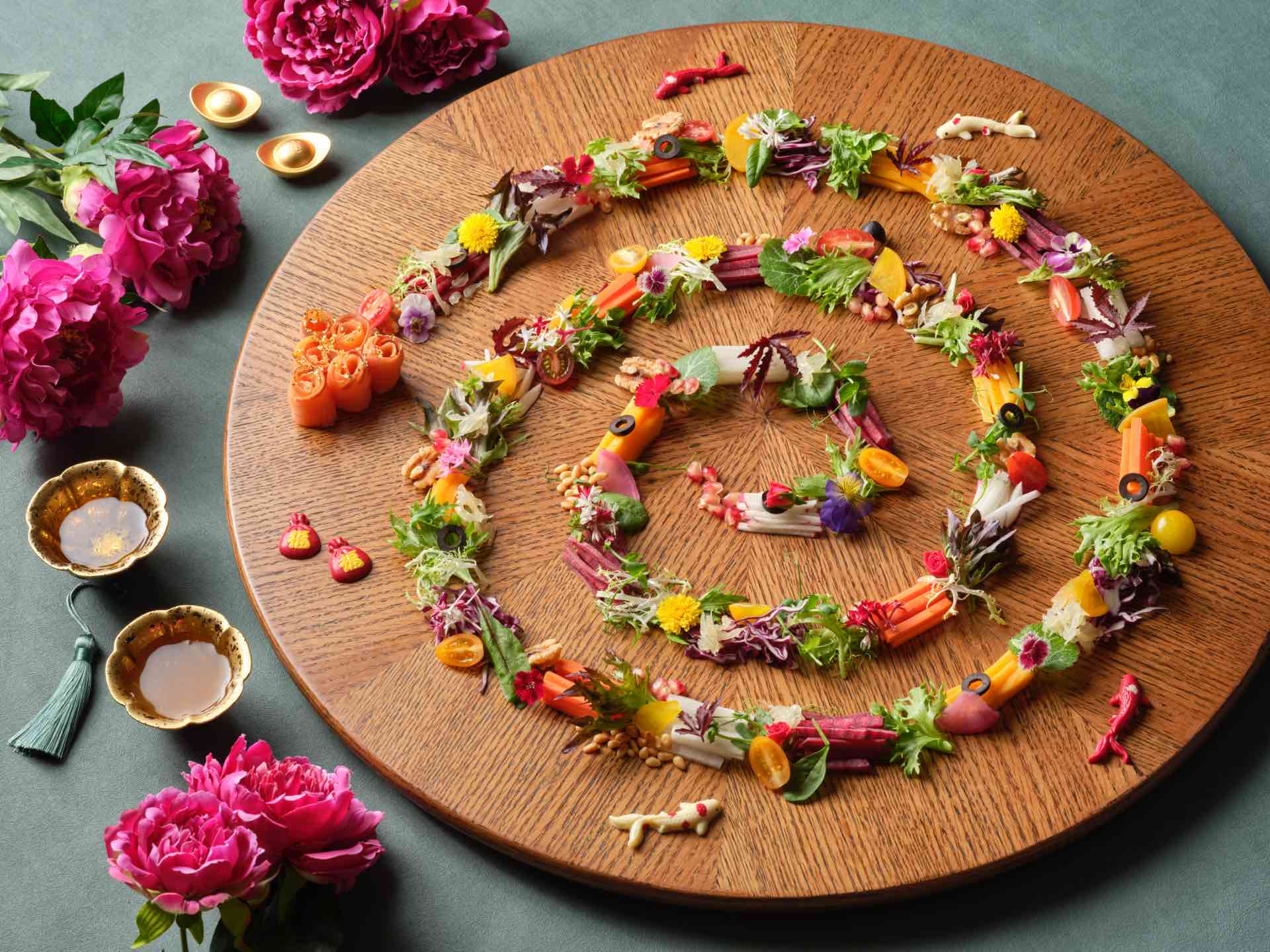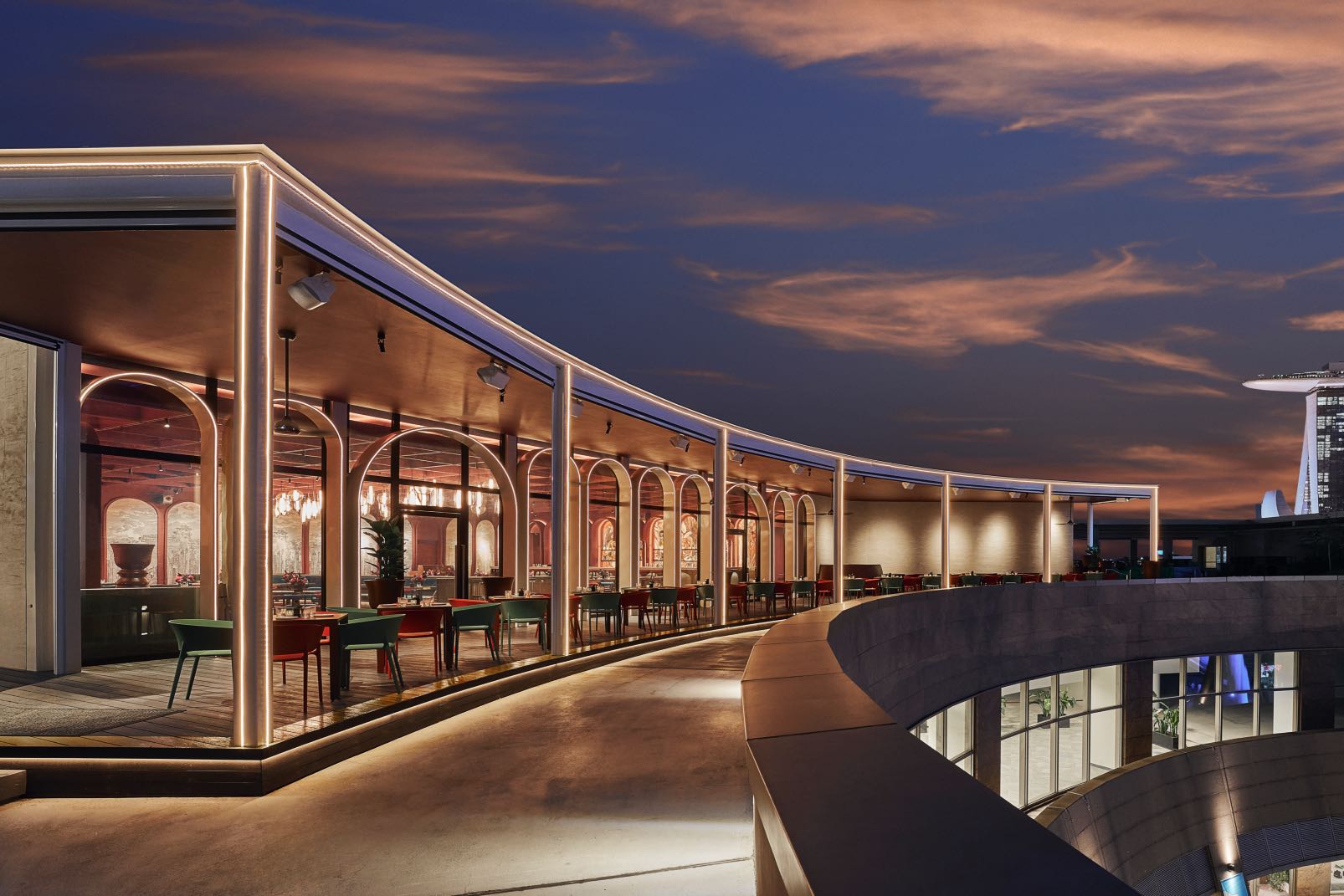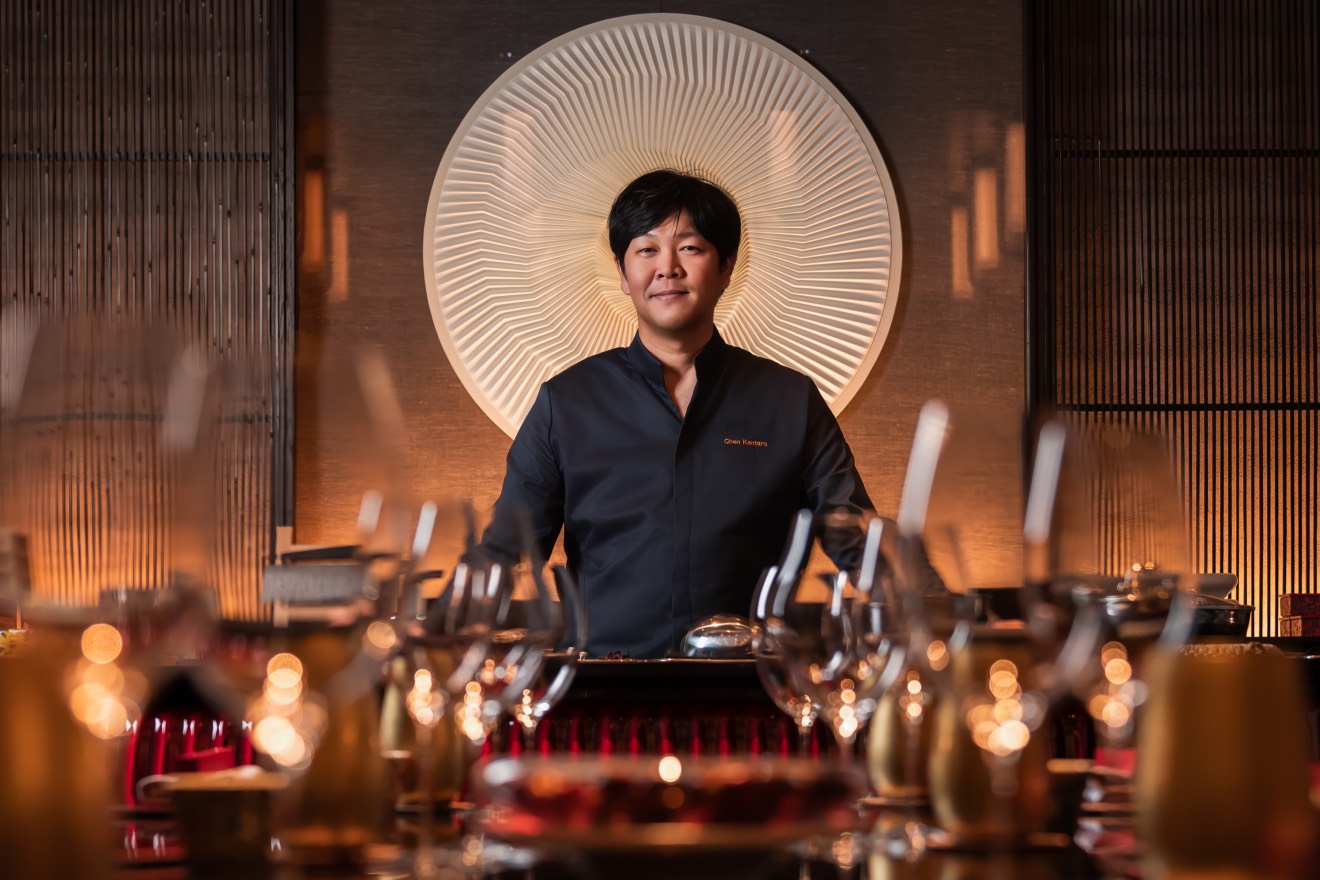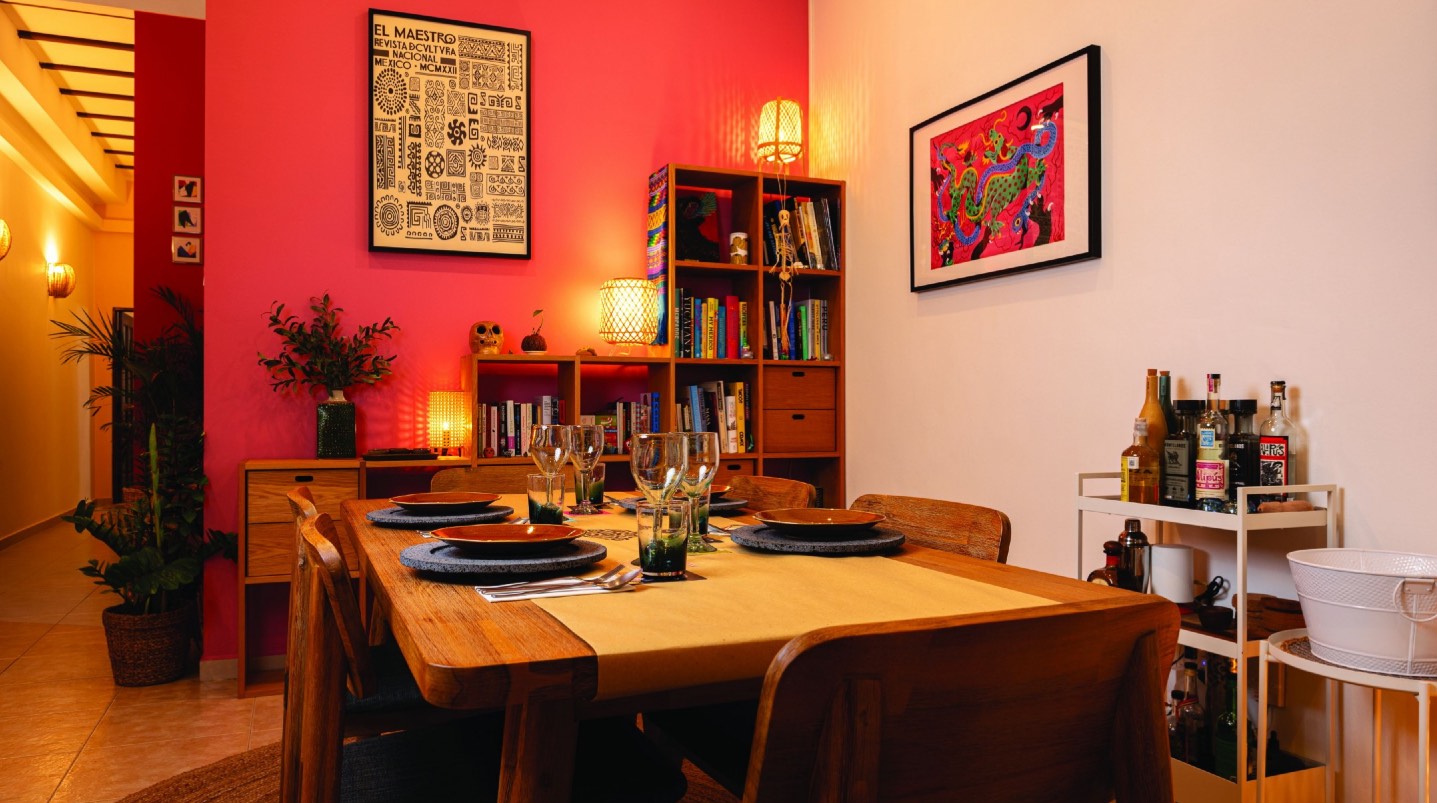
At Coacoa, Mexican chef Sebastian Alvarez dishes up history, culinary arts and vibrant design in multisensorial private dining experiences that nourish the body and mind.
Did you know that pitaya, or the dragon fruit, is native to Mexico? And so are soursop and sapodilla? We didn’t. Chef Sebastian Alvarez told us these fun facts during our visit to his home-slash-private dining venue at Tanjong Pagar.
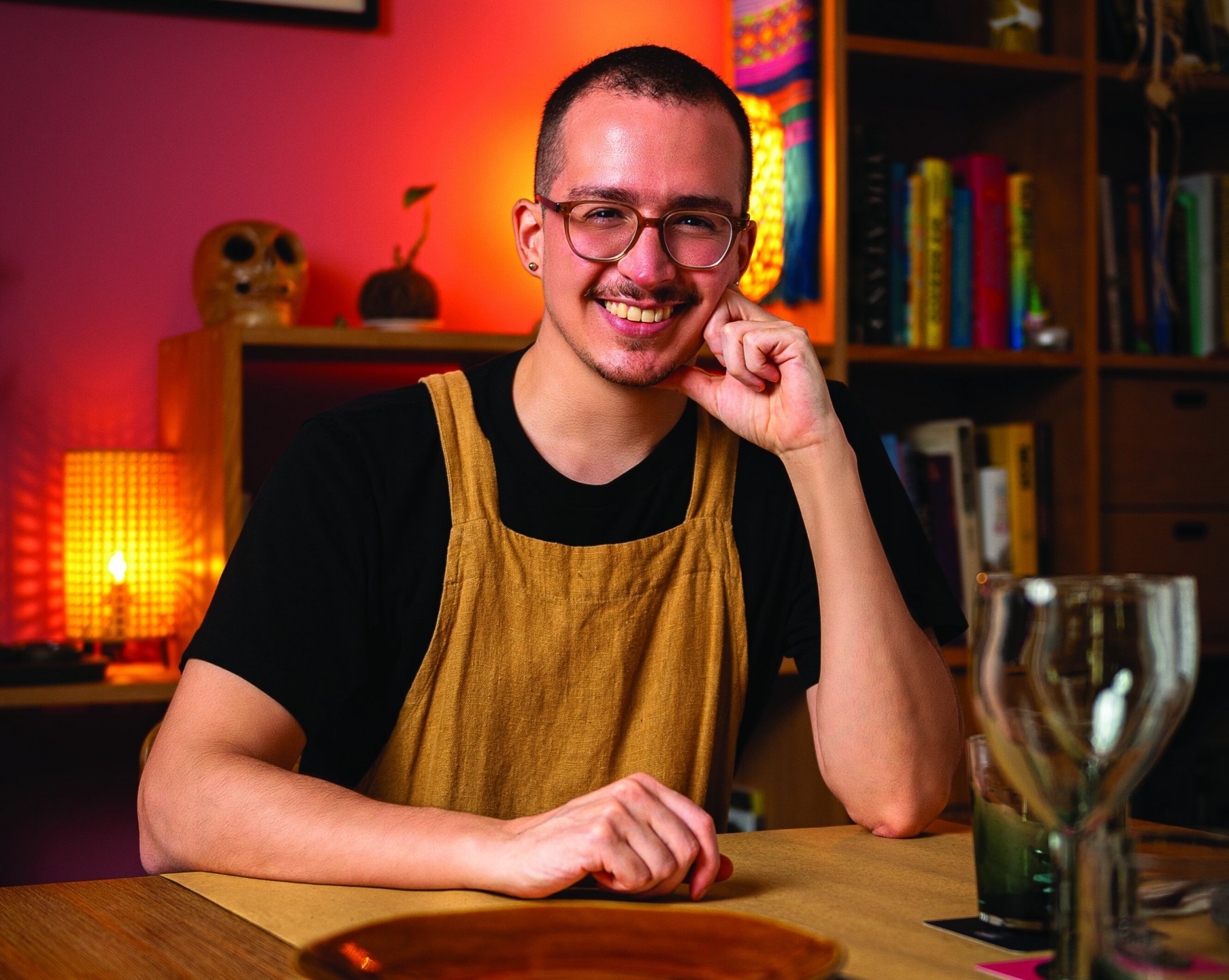
Occupying a conservation shophouse’s ground floor, Coacoa offers authentic Mexican home dining experiences and culinary consultancy with Alvarez as Executive Chef and Creative Director.
“I do the booking, cooking and advertising,” Alvarez quips. Born and raised in Mexico City, he moved to Singapore in February 2020 and has completed two specialisation programmes at ESGAMEX, Mexico’s oldest culinary school dedicated to the research, promotion and development of local haute cuisines.
Bringing authentic Mexican cuisine to Singapore
Besides cooking, Alvarez also enjoys photography, branding and interior design, a set of interests that led him to launch a side hustle as a private chef and culinary consultant in 2022. He initially named this initiative Tlaxcoa—a play on the words love (tlahzoa) and snake (coatl) in Nahuatl, the indigenous language of Central Mexico, where present-day Mexico City is.
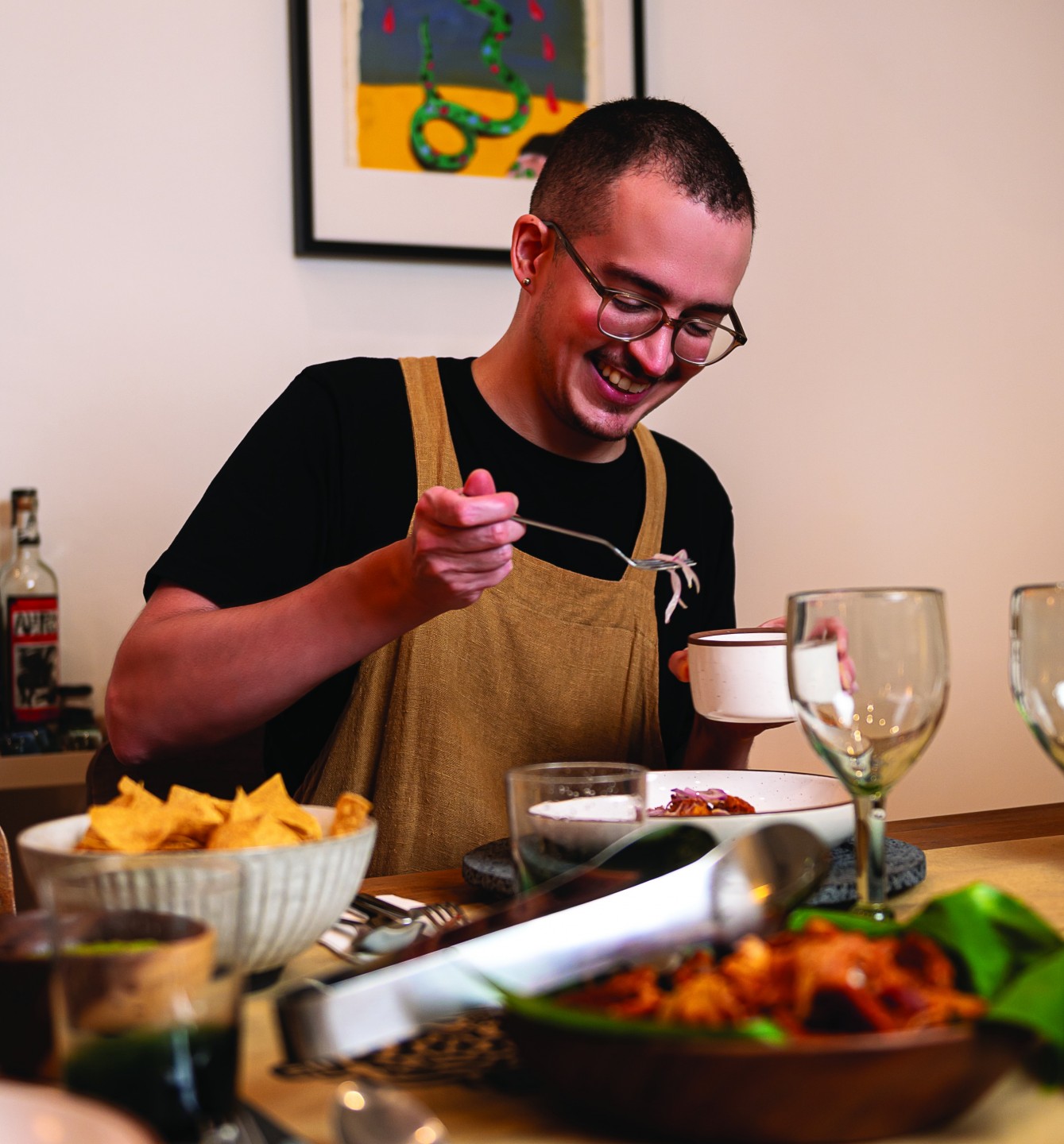
“The idea was to fall in love with Mexican food,” Alvarez explains. “And I love snakes. They symbolise fertility, abundance, renewal and transformation in Mexican culture.”
These translated into vibrant branding and striking printed collaterals that enrich the dining experience. However, he later realised that it was challenging for non- Mexicans to pronounce the ‘tl’ sound in the name. “So we shortened it to Coacoa—snake snake,” he says, referring to the company’s double-headed snake logo.
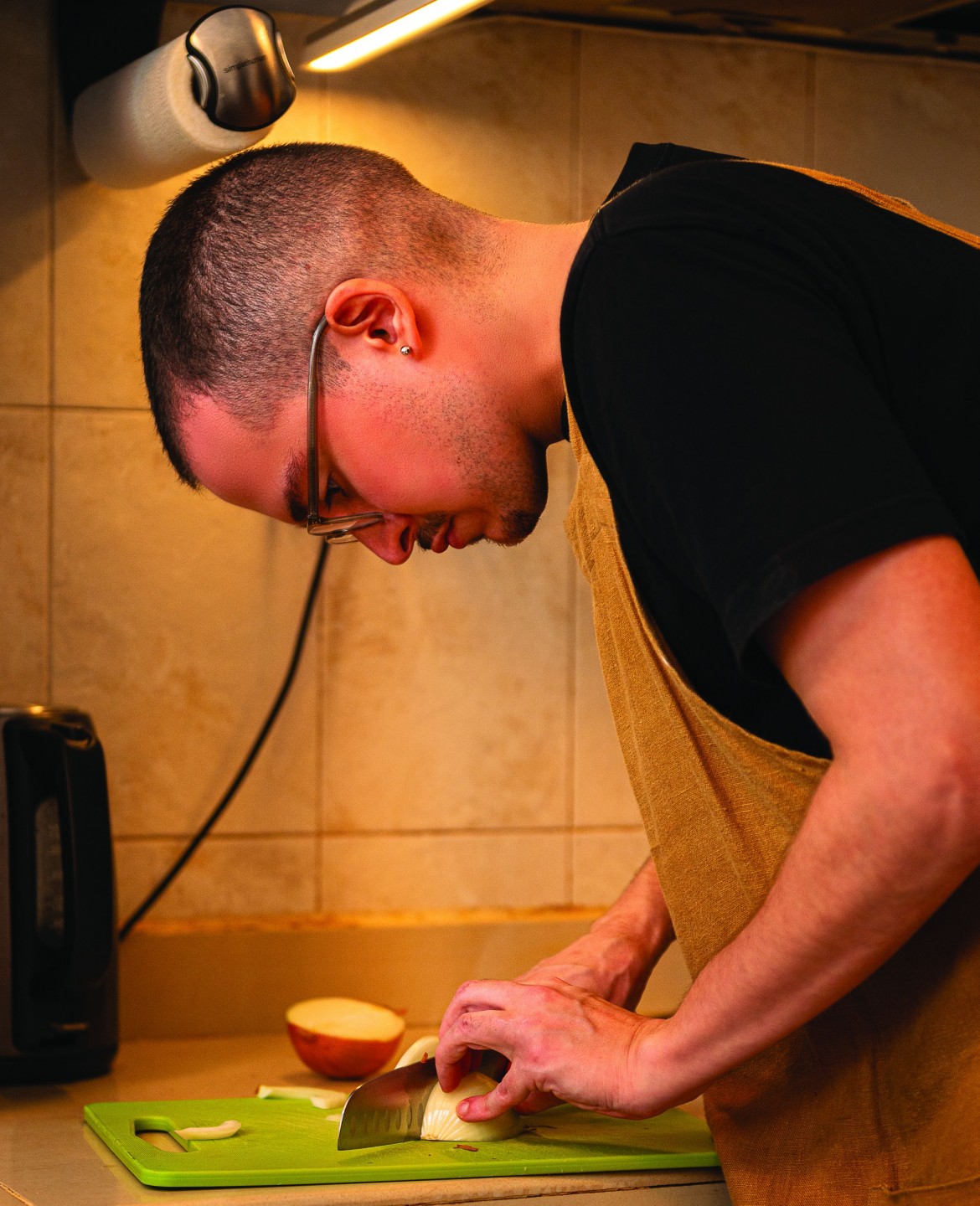
While Coacoa serves an innovative Asian-Mexican menu during pop-up and collaborative events (jackfruit and hibiscus quesadilla, anyone?), it dedicates its shophouse private dining sessions to authentic Mexican culture.
Transforming the shophouse into a cosy Mexican nest
“The existing shophouse had not been refreshed in a while, but I saw the potential. Serving traditional Mexican dining in a quintessentially Singapore setting – a shophouse – would be a perfect match. That’s why I embarked on this renovation project,” says Alvarez.
The renovation was relatively simple but effective, designating the dining area as the focal point and leaving the surroundings as a canvas for storied decor and knick-knacks.
Asked about what a place should have to create an unforgettable dining experience, Alvarez muses: “It’s going to sound a bit cliched but it must have a soul. That’s the key. Whatever style your cuisine is, your house – its colour, lighting, decor – must reflect it and tell the story of the food you serve.”
Inspired by Mexican Pritzker Prize-winning architect Luis Barragan’s work, Alvarez broke up the monotony of the shophouse’s long corridor by articulating the walls with quintessential Mexican colours: pink, orange and yellow. The pink wall hosts a large framed artwork of Aztec motifs and shelves at staggered heights that house cookbooks and accessories from Mexico.
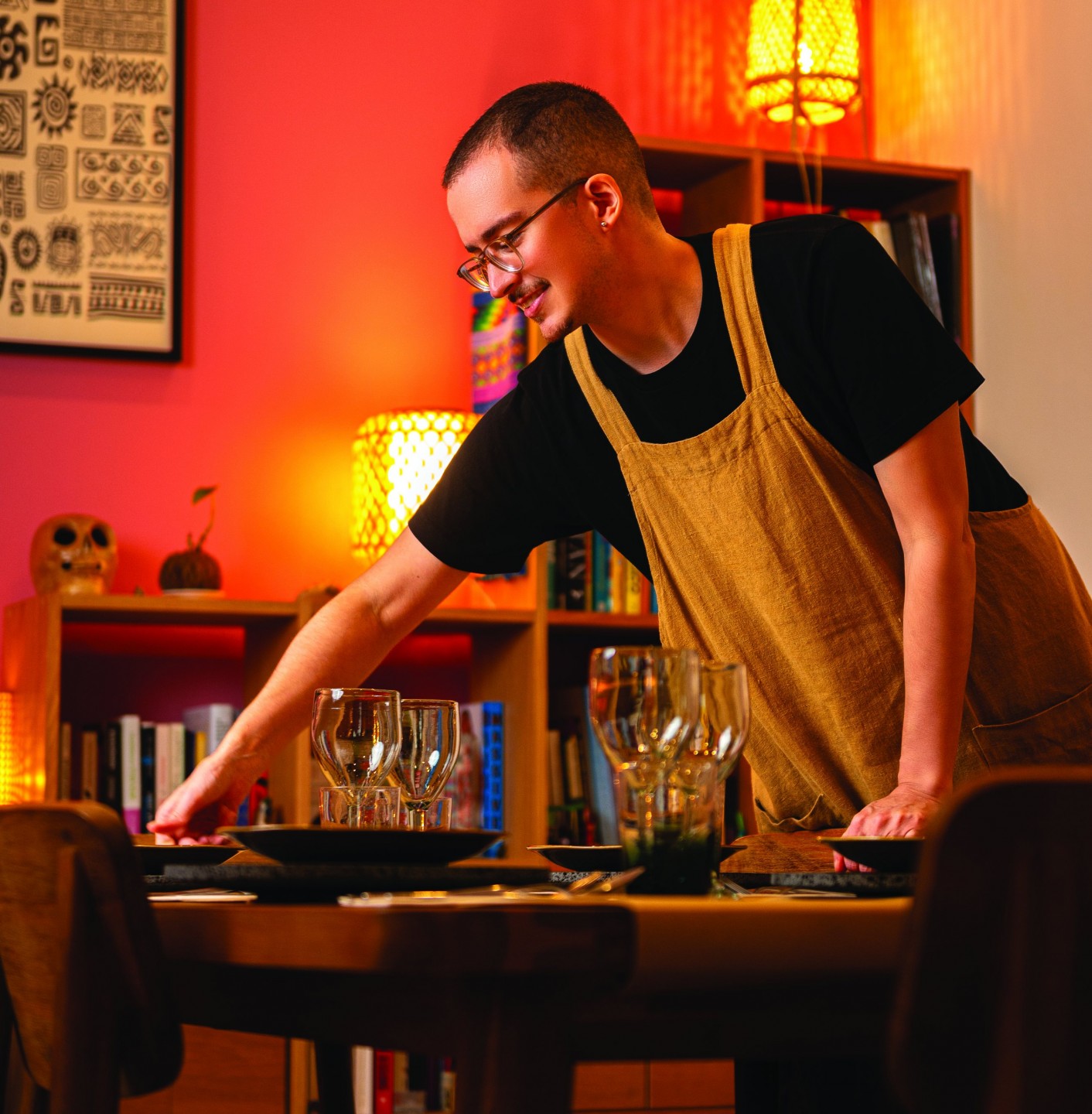
The artworks and accessories are an eclectic collection curated for either their handmade touch, colours, culinary theme or the chef’s personal sentiments. These include the linocut prints of molinillo (a Latin American cacao whisk) and metate (a traditional Oaxacan grinder).
Snakes are a leitmotif throughout the house, from the public area to the work kitchen at the end of the corridor. The latter has been outfitted with plenty of shelves and work surfaces. Here and there, one glimpses clever storage hacks and experimental cooking equipment. Attached to the side of the fridge are magnetic spice jars filled with a mix of Mexican and international spices, arranged neatly into a Pinterest-worthy formation.
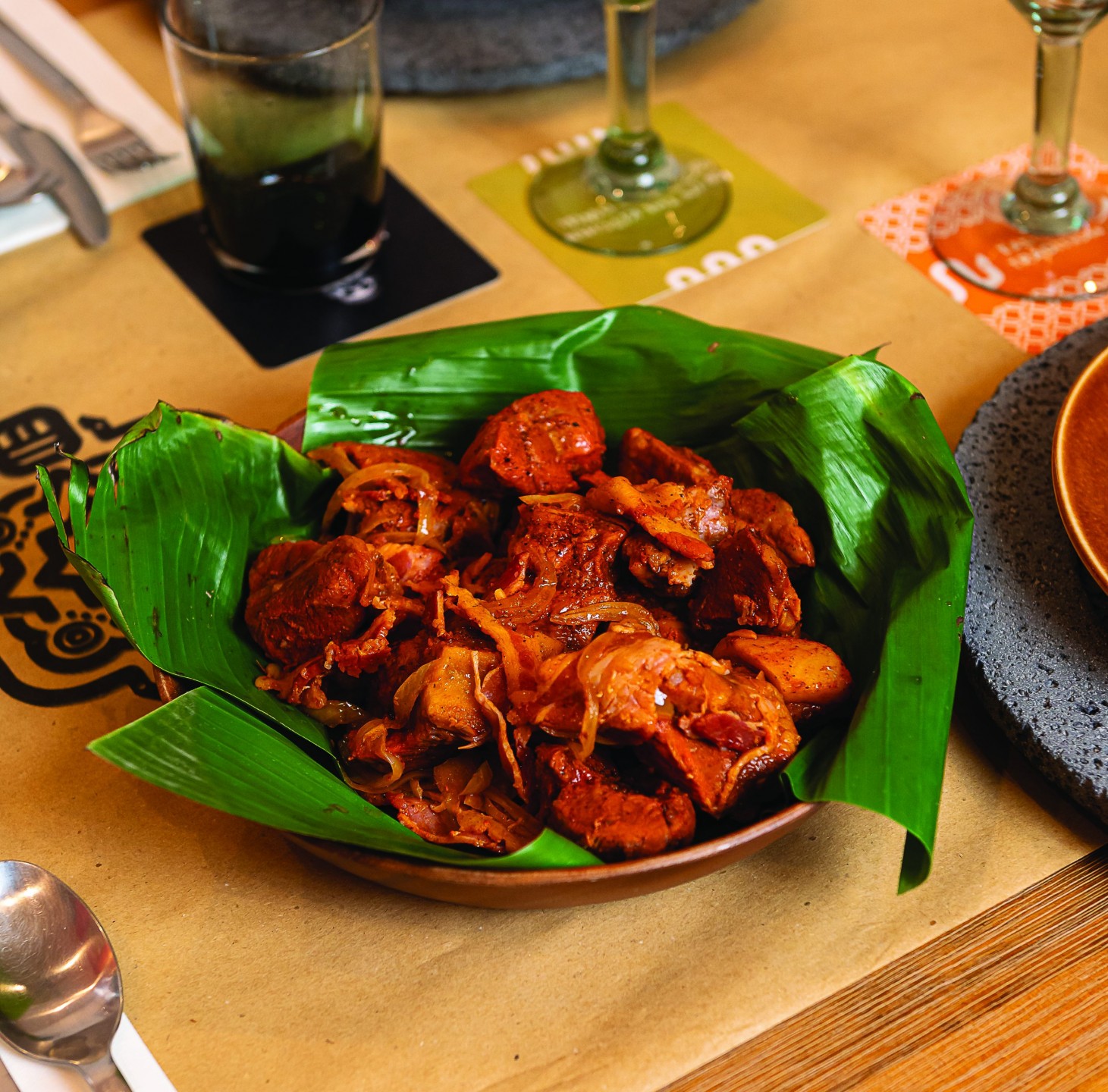
Meanwhile, in another corner, a slab of pork marinated in achiote, wrapped in banana leaves and weighed down with chainmail is slow-cooked in 75-degree water for 20 hours. It’s a reimagining of the traditional Yucatan way, in which the meat is buried with hot stones in an underground pit for an entire day.
An intimate dining experience
Coacoa holds two to three dinners per week, and even though the space could fit a few, it has only a single table, limiting its guests to a maximum of six pax at a time. “I want to recreate the intimate experience of coming to an actual Mexican home and enjoying the dishes that I grew up with,” says Alvarez.
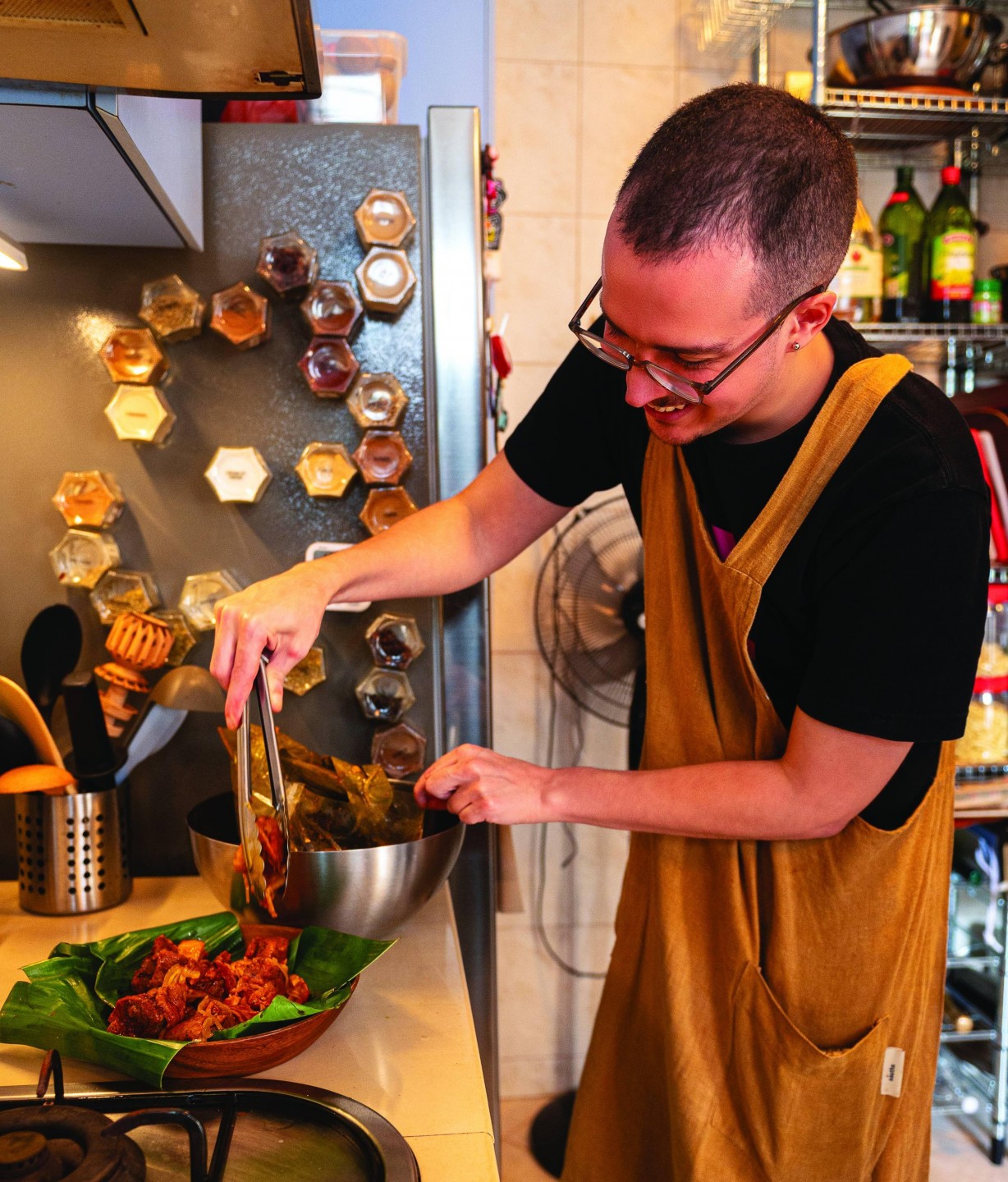
Coacoa doesn’t just serve delicious dishes. It also unearths the history of the ingredients, cooking techniques and other interesting tidbits to nourish its guests. “Take for example tacos across different regions in Mexico – those in the Yucatan Peninsula, which will be the featured region for our upcoming menu, differ from those in Mexico City or Oaxaca.”
Setting the table is in itself an elaborate, hands-on ritual. First, Alvarez divides the tabletop space – the Seb dining table from Castlery – according to the number of diners. Then he lines it with simple brown paper and hand-stamps its centre with Coacoa’s logo. The design includes meaningful pictograms of snakes and corn kernels, creating an eye-catching centrepiece that also serves as a talking point.
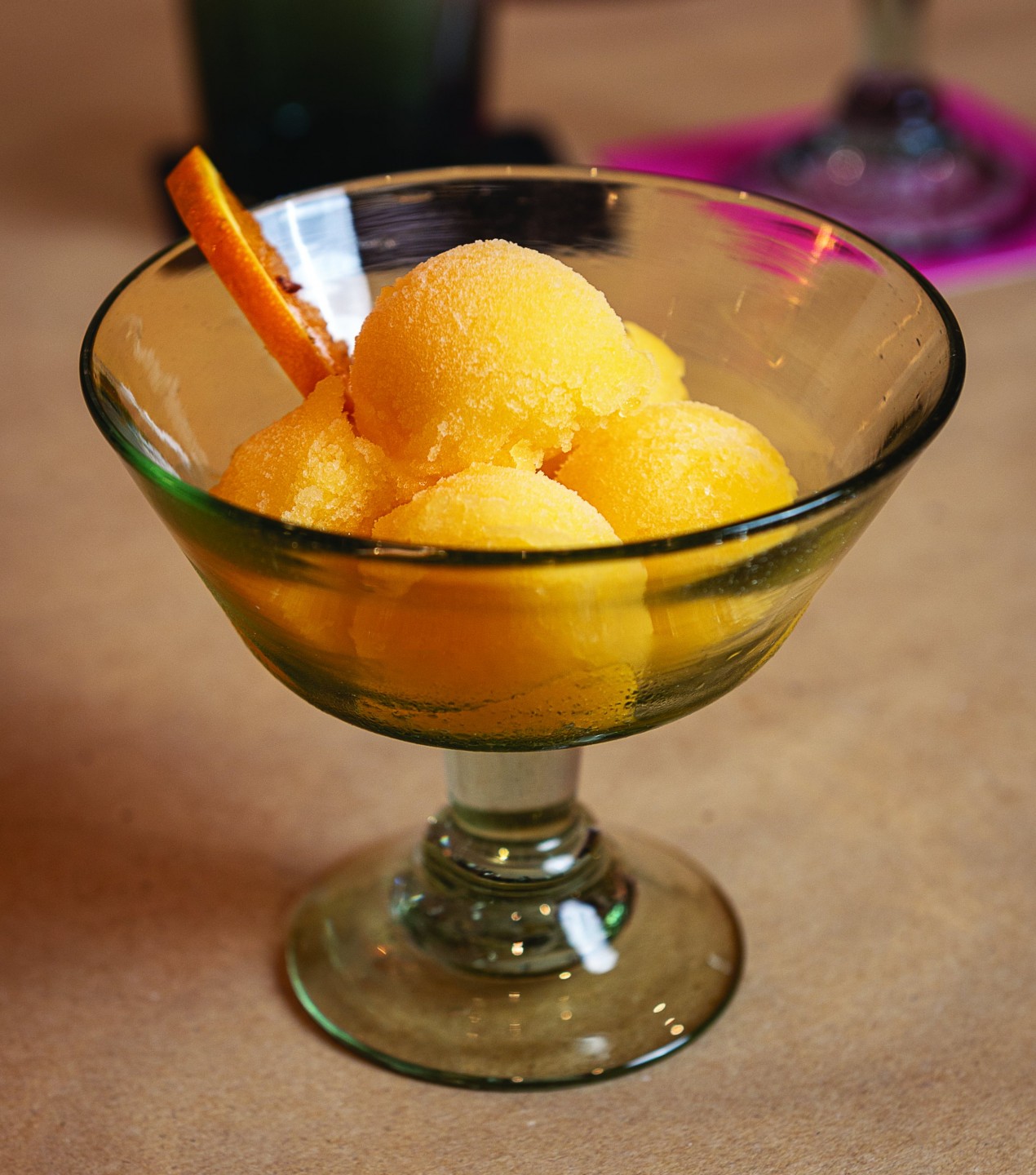
During the dinner service, Alvarez is not just the chef but also the server, the host and the guests’ personal historian. “I will introduce each course, and after four courses, I will join them at the table and give them more context.”
Guests leave the dining experience feeling not only nourished by the fabulous food but also with a renewed appreciation for Mexican culture – and ideally feeling like they have made a friend along the way.
For enquiries and bookings, diners can slide into Coacoa’s Instagram DMs. They would be requested to arrive at 7 pm, and dinner typically lasts three to four hours, with a rotating menu that showcases different regional cuisines.
A version of this article first appeared in SquareRooms.


